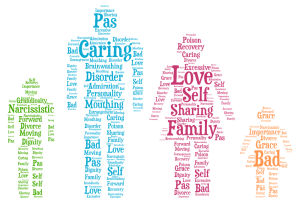
Alienation Definition
Definition of Alienation (noun) The estrangement of individuals from themselves and others; a feeling of normlessness and powerlessness caused by separation and isolation from an individual’s sense of self, society, and work. Electroplankton characters.
Definition of Parental AlienationNoun. The manipulation of a child to reject one parent or the other.Origin1980s U.S. Psychology term What is Parental AlienationIn the eyes of the law, children need to have a good relationship with both parents, and to achieve that, each parent should have significant quality time with the child. Unfortunately, divorce is usually an ugly affair, and many parents allow their anger to spill over into the lives of their children.
alienation
 the separation of people from their essential qualities as human beings in capitalist societies. Karl Marx (1818-83), who first developed the concept, believed that ‘free conscious activity’ was the hallmark of human activity Work in modern capitalist society, which involves the worker producing goods and services for the profit of an employer and in a manner dictated by the employer, separates (i.e. alienates) people from their essence. In effect an individual's labour power is reduced to a commodity to be bought and sold. Job dissatisfaction may well result, but the possibility arises that alienation from ‘true’ human desires is so deep that individuals have no standard against which to compare their lot and hence may nevertheless experience job satisfaction. Since alienation, as defined here, has no clear discernible relationship with SATISFACTION, many critics have argued that its use in the analysis of work attitudes and behaviour is decidedly limited.
the separation of people from their essential qualities as human beings in capitalist societies. Karl Marx (1818-83), who first developed the concept, believed that ‘free conscious activity’ was the hallmark of human activity Work in modern capitalist society, which involves the worker producing goods and services for the profit of an employer and in a manner dictated by the employer, separates (i.e. alienates) people from their essence. In effect an individual's labour power is reduced to a commodity to be bought and sold. Job dissatisfaction may well result, but the possibility arises that alienation from ‘true’ human desires is so deep that individuals have no standard against which to compare their lot and hence may nevertheless experience job satisfaction. Since alienation, as defined here, has no clear discernible relationship with SATISFACTION, many critics have argued that its use in the analysis of work attitudes and behaviour is decidedly limited. A closer link between alienation and job satisfaction has been provided by American sociologist Robert Blauner (1929 -). He defined alienation as a ‘fragmentation in man's consciousness’, experienced as dissatisfaction. The dimensions of this are a sense of powerlessness (i.e. inability to control what happens at work), a feeling of meaninglessness (i.e. the job tasks seem pointless), a sense of isolation from others, and a feeling of self-estrangement (i.e. that one's creativity is stifled). In Blauner's view, technology is the most important determinant of alienation.
In assembly-line work (see FORDISM) alienation reaches its peak. By contrast, more recent process technology, in which the worker oversees a range of operations rather than being subjugated to the machine, is associated with lower levels of alienation. The logic of Blauner's account, in contrast to that of Marx, is that alienation can be reduced by managerial policies to modify the nature of workers'tasks (see JOB DESIGN AND REDESIGN) and to integrate workers into a work community (see HUMAN RELATIONS). See ANOMIE.
You can deflect projectiles as well, but again you need to be swinging your sword when they hit you or it's game over.You feel yourself getting better with every round. You're not just getting quicker, you're getting smarter. Super samurai rampage.